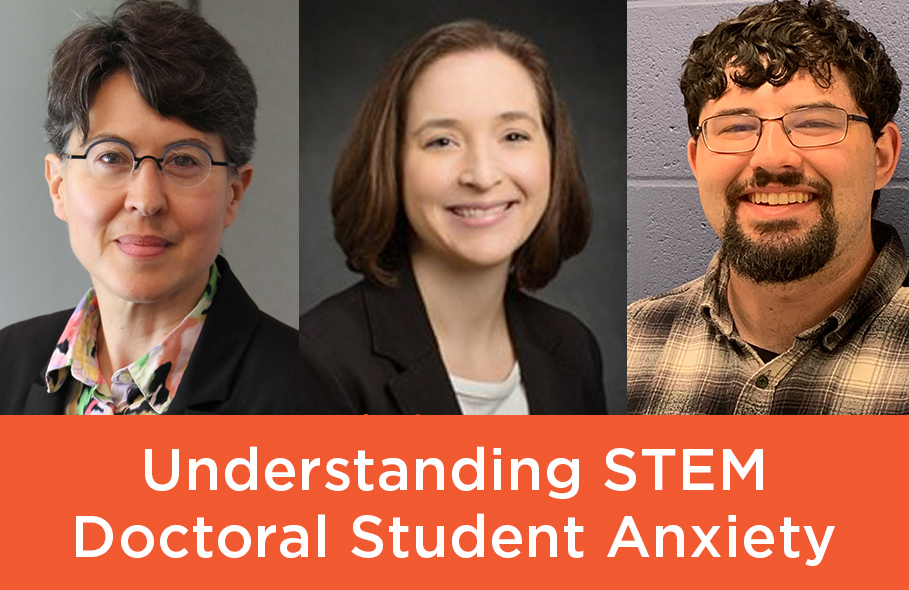New NSF Funding: Understanding STEM Doctoral Student Anxiety
by Ashley Lawrence / Mar 2, 2021

By evaluating top stressors for students in doctoral engineering programs, Illinois researchers look to help inform interventions to retain graduate students in engineering programs and meet the increasing need for proficient engineers in the U.S. workforce.
Professor of Educational Psychology Jennifer Cromley and Department of Bioengineering teaching assistant professor Karin Jensen are leading a team of researchers that have been awarded nearly $350K from the National Science Foundation to conduct their project, Understanding Graduate Engineering Student Well-being for Prediction of Retention. An integral part of the collaboration, Educational Psychology Ph.D. student and Grainger College of Engineering alum Joseph (Joe) Mirabelli provides first-hand knowledge and experience exploring engineering graduate student pressures and the mental health implications on student retention. (Read about the team’s previous research, reported in this Grainger College of Engineering story.)
In their NSF proposal abstract, Cromley and Jensen observe that doctoral students in the U.S. frequently leave engineering programs, thereby reducing the supply of highly-trained engineers and contributing to lost investments made in doctoral student tuition. Ph.D. students face much stress: from classwork, from their paid teaching and research commitments, and from other factors outside of graduate work. Over the course of the project, Cromley and team plan to identify major stressors that high-level engineering students commonly face, create and validate a questionnaire to measure these stressors, and test how stress can predict students’ intentions to leave their doctoral programs.
“Prior research has been done to identify a list of stressors that doctoral engineering students report experiencing, but there’s little sense of what the biggest common stressors are,” says Cromley. “The analysis of our survey should show predictors of attrition, which could then be used by graduate programs in a number of ways as initiatives to reduce anxieties, build coping skills with various supports, or to identify at-risk students for extra supports.”
The project will use a workplace anxiety model in which having low control over job hindrances (e.g. course availability, graduation requirements, COVID-19) leads to harmful stress. Its results will inform a wide range of programming and personnel that are able to support doctoral engineering students, including faculty advisors and engineering departments, counseling centers, career centers, writing centers, and more.
“Retaining students in doctoral engineering programs is critical to meeting increasing needs for engineers in the workforce,” says Jensen. “By understanding stressors for graduate student engineers, we can develop proactive interventions to improve the student experience and retain talented students within essential STEM fields like engineering.”
Outcomes of the project will be findings about the prevalence of different stressors by groups (e.g., groups under-represented in engineering, early/middle/late in doctoral studies, domestic vs. international Ph.D. students, etc.), a validated questionnaire widely usable by programs and researchers, and estimates of the effect of stress on intention to remain in a doctoral engineering program. A technical manual and non-technical descriptions of the findings will be made available to the public, together with presentations at research- and practice-focused conferences.
For more information about this research, view the NSF Award description or contact Dr. Jennifer Cromley at jcromley@illinois.edu or Dr. Karin Jensen at kjens@illinois.edu.